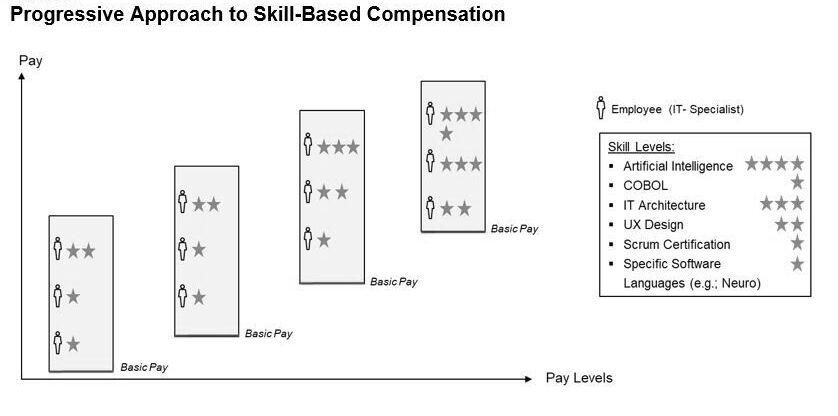Introduction
In the realm of decision-making, our assessment of our own skills and abilities can significantly influence the choices we make. The mental model known as “Skill Compensation” sheds light on how individuals tend to overestimate their abilities in one area to compensate for perceived deficiencies in another. This concept is deeply rooted in human psychology and has a profound impact on our day-to-day lives. In this blog post, we will explore the concept of Skill Compensation, analyze its prevalence in various contexts, discuss the biases that contribute to this fallacy, offer practical strategies to avoid succumbing to it, and highlight the implications of this mental trap.
Understanding Skill Compensation
Skill Compensation refers to the tendency of individuals to overestimate their competence in one domain to compensate for perceived incompetence in another. It arises from the innate desire to maintain a positive self-image and avoid feelings of inadequacy. People engage in Skill Compensation when they believe that excelling in one area compensates for their shortcomings in another.
Relevance in Decision-Making Processes
Skill Compensation is highly relevant in decision-making processes as it can lead to irrational judgments and misguided choices. By overestimating their abilities in a particular skill or domain, individuals may neglect the need for improvement or fail to recognize their limitations. This can result in poor decision-making, misplaced confidence, and adverse outcomes. Understanding Skill Compensation helps us make more objective assessments of our skills, leading to better-informed decisions.
Occurrence of Skill Compensation in Various Contexts
- Personal Life Decisions: Consider a person who excels in their professional career but struggles with personal relationships. Skill Compensation may lead them to believe that their professional success can compensate for their interpersonal challenges. As a result, they may neglect the importance of improving their social skills, ultimately hindering their personal growth and relationships.
- Business Scenarios: In the business world, Skill Compensation can manifest when individuals or teams overestimate their capabilities in certain areas, such as marketing or product development. This overconfidence can lead to neglecting crucial aspects, such as market research or customer feedback, resulting in failed product launches or ineffective marketing strategies.
- Public Policy-Making: Skill Compensation can influence public policymakers who may possess expertise in one area but lack knowledge in other fields. These policymakers might believe that their expertise automatically qualifies them to make decisions in unrelated domains. As a consequence, policies may be formulated without sufficient understanding of the complex interdependencies, leading to unintended consequences and suboptimal outcomes.
Mental Biases and Psychological Underpinnings
Skill Compensation is closely intertwined with several cognitive biases. One such bias is the Dunning-Kruger effect, where individuals with limited knowledge or skills tend to overestimate their competence, while those with higher expertise tend to underestimate theirs. The Dunning-Kruger effect contributes to the inflated self-assessment seen in Skill Compensation.
Another bias linked to Skill Compensation is confirmation bias. People often seek information that validates their beliefs about their own skills, ignoring evidence to the contrary. This reinforces their false sense of competence and hampers objective self-assessment.
Additionally, the illusion of superiority, a bias commonly associated with Skill Compensation, refers to the tendency to view oneself as better than others. This bias can further inflate one’s self-perception of skills, leading to overconfidence and poor decision-making.
Identifying and Avoiding Skill Compensation
To identify when we might be succumbing to Skill Compensation, it is crucial to cultivate self-awareness and remain open to feedback. Here are some strategies to avoid this mental trap
- Seek constructive feedback: Actively seek feedback from trusted individuals who can provide an unbiased assessment of your skills. This can help you gain a more accurate understanding of your abilities and identify areas for improvement.
- Embrace a growth mindset: Adopt a mindset that values continuous learning and improvement. Recognize that skills can be developed through practice and effort, and acknowledge the need for ongoing development rather than relying solely on existing strengths.
- Encourage diverse perspectives: Surround yourself with individuals who excel in different areas and value diverse perspectives. This promotes a more comprehensive understanding of various domains, reduces Skill Compensation tendencies, and fosters collaboration.
- Conduct objective self-assessments: Regularly evaluate your skills and competencies, taking into account objective criteria and feedback. Compare your assessments with external benchmarks or expert opinions to gain a realistic perspective.
Conclusion
Skill Compensation serves as a cautionary mental model, reminding us of the potential pitfalls associated with overestimating our abilities in one area to compensate for perceived deficiencies in another. By understanding the biases and psychological underpinnings that contribute to Skill Compensation, we can strive for more objective self-assessments and make better-informed decisions. Maintaining self-awareness, seeking feedback, and embracing a growth mindset are essential strategies for avoiding this mental trap. By recognizing the implications of Skill Compensation, we can navigate decision-making processes with increased objectivity, leading to more successful outcomes and personal growth.
